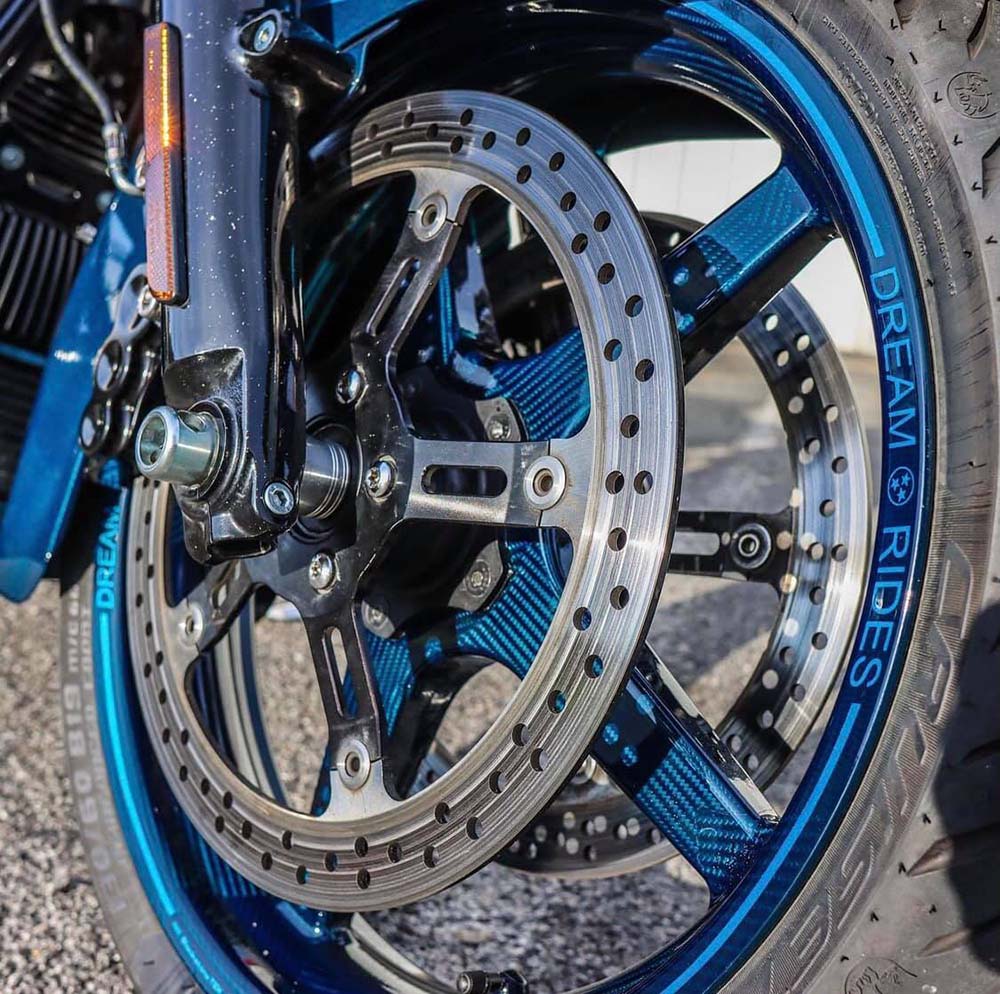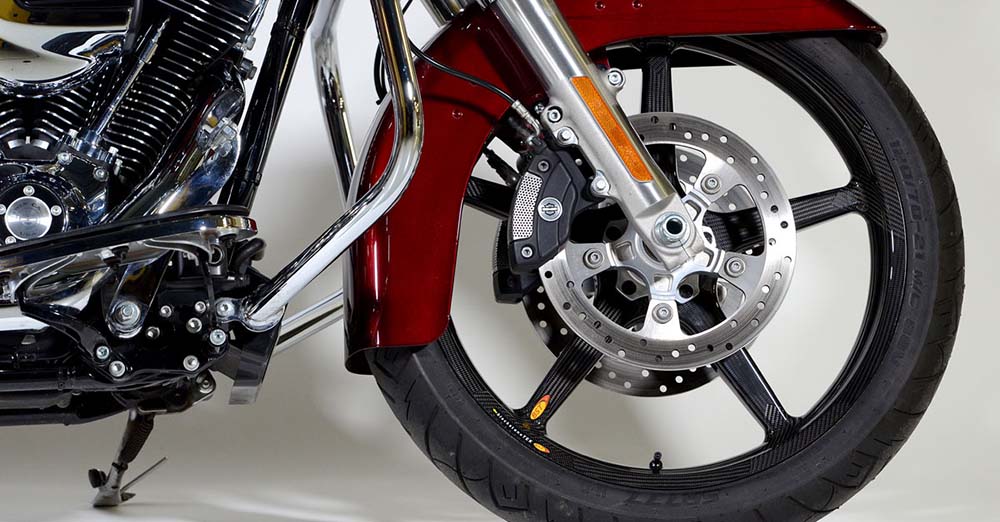Are you looking to get a new set of wheels for your motorcycle? There are several common options available, including carbon fiber, magnesium, and aluminum alloy wheels. Each of these options comes with its own advantages and disadvantages. However, carbon fiber wheels are well-known for their many performance and safety-related benefits.
While there are some drawbacks to carbon fiber (particularly the high price), it's the overall best pick out of magnesium and aluminum alloys. If you're thinking about upgrading your wheels to carbon fiber, you should consider all of the benefits that come with this type of wheel. We'll explain why carbon fiber wheels are a better choice than magnesium and aluminum alloys, so you can feel confident about making this upgrade to your bike.
What Are the Benefits of Carbon Fiber Wheels?
You should be aware of carbon fiber wheel benefits before you start shopping for new wheels. Though these types of wheels can be expensive, they are top-quality, which means you'll get plenty of important benefits. There are many advantages to choosing this type of wheel, including safety and performance gains. Why do carbon fiber wheels come with so many benefits?
Carbon fiber is a strong yet lightweight material. Because of this, carbon fiber wheels are perfect for motorcycles, as they are stiff and durable enough to handle the road. They are also light enough to lower the unsprung weight on the motorcycle, leading to safety and performance benefits.

Safety
A significant reason why many motorcycle owners choose to upgrade their stock wheels to carbon fiber wheels is because of safety reasons. Carbon fiber wheel benefits, like safety or performance, are important whether you're racing on the track or cruising on the highway.
Carbon fiber wheels are particularly safer on the road compared to aluminum wheels because of how lightweight they are. With carbon fiber wheels, the unsprung weight is lowered. This lower weight helps to keep the wheels on the ground. When you're driving in rough road conditions and need to keep your motorcycle wheels on the ground, carbon fiber wheels can help improve overall safety.
Performance
Another reason why many motorcyclists prefer carbon fiber wheels over magnesium or aluminum wheels is because of the performance gains. When you choose to upgrade to carbon fiber wheels, you'll enjoy benefits like improved handling, speed, and efficiency. For those who like to race at the track, upgrading to carbon fiber wheels is an obvious choice. The lightweight material, coupled with the easy turning and handling capabilities, make carbon fiber wheels a great choice for those looking to improve their speed around the track.

Why Are Carbon Fiber Wheels a Better Choice Than Magnesium and Aluminum Alloys?
There are many carbon fiber wheel benefits, but why is it a better choice than magnesium or aluminum alloys? Overall, there are more advantages to choosing carbon fiber wheels than disadvantages. Though each option has pros and cons, ultimately motorcyclists may want to go with carbon fiber wheels.
Carbon Fiber Compared to Magnesium
Magnesium is like carbon fiber–lightweight. However, magnesium wheels aren't very durable. In fact, some magnesium wheels may not last an entire racing season. For those who are planning on racing, durability may not be a top concern, though. Since it's lightweight, magnesium has a lot of the same performance benefits as carbon fiber. Additionally, magnesium is more prone to corrosion than carbon fiber.
Carbon Fiber Compared to Aluminum
Typically, aluminum is a heavier type of material than carbon fiber. What does this mean for motorcycle wheels? Heavier wheels can significantly impact the performance of a motorcycle. From speed to handling, riders will have a more difficult experience. Lighter wheels help to improve speed, handling, turning, safety, and more.
However, aluminum is cheap and easy to manufacture. That's why stock wheels usually come in steel or aluminum. They're a good choice for those on a tight budget who need a wheel that is strong and durable. But, if you're looking to get performance gains out of your wheel, you'll need to consider more expensive upgrades like magnesium and carbon fiber. They are much more lightweight than aluminum, which impacts performance.
Aluminum is also generally more durable than carbon fiber wheels. They'll be able to take rough driving conditions thanks to their stiffness and strength. Aluminum wheels will be able to take harder impacts, like potholes, without receiving damage. For those who do a lot of street riding, this advantage is important, as you don't want to replace your wheels often. Aluminum wheels won't break or damage easily, which is a huge benefit. Comparably, carbon fiber isn't quite as durable as aluminum.

Additionally, aluminum wheels are a bit more flexible than carbon fiber wheels. This flexibility is particularly beneficial during the driving experience. A bike with aluminum wheels will be able to absorb shocks and vibrations. It also means that aluminum wheels are easier to repair than carbon fiber wheels. Plus, replacing aluminum wheels in the event of damage is much less expensive.
However, though aluminum wheels do have some benefits, they don't compare to carbon fiber in terms of performance. Carbon fiber wheel benefits include improvements in speed, efficiency, and handling. Even if you don't plan on racing your bike, these performance gains can help you on the street. With better handling and grip, you'll stay safer on the roads with carbon fiber wheels.
Overall, if you're wondering whether to upgrade to carbon wheels, you should consider the numerous benefits of this type of wheel. If you're interested in performance gains or improved safety, then you'll likely want to upgrade your wheels to carbon fiber. We have a selection of BST carbon fiber wheels if you're ready to start shopping for your new wheels.
